The Anti-lock Braking System (ABS) is a critical component in ensuring the safety and efficiency of semi-trucks on the road. At CarMax Vehicle, we understand the paramount importance of maintaining this system to prevent accidents, ensure compliance with safety regulations, and enhance the longevity of your fleet. This guide delves deep into everything you need to know about the ABS light on semi trucks, providing detailed insights, troubleshooting steps, and maintenance tips to keep your operations running smoothly.
Table of Contents
- What is ABS and How Does It Work in Semi Trucks?
- Common Reasons for the ABS Light Illumination
- Troubleshooting the ABS Light on Your Semi Truck
- The Importance of Regular ABS Maintenance
- CarMax Vehicle’s ABS Solutions
- Preventive Measures to Avoid ABS Issues
- Legal Implications of a Malfunctioning ABS
- Comparing ABS Systems: CarMax Trailer vs. Competitors
- Enhancing Driver Safety with CarMax’s ABS Technology
- FAQs
What is ABS and How Does It Work in Semi Trucks?
The Anti-lock Braking System (ABS) is an advanced safety feature designed to prevent the wheels from locking up during braking, thereby maintaining traction with the road surface. In semi-trucks, ABS plays a crucial role due to the vehicle’s significant weight and the varying load conditions it operates under.

Key Components of ABS in Semi Trucks
- Wheel Speed Sensors: Monitor the speed of each wheel and send data to the ABS control module.
- ABS Control Module: Processes sensor data to determine if a wheel is about to lock.
- Hydraulic Control Unit: Modulates brake pressure to prevent wheel lock-up.
- Electronic Pump: Maintains optimal brake pressure during operation.
How ABS Enhances Safety
When a driver applies the brakes sharply, ABS ensures that each wheel decelerates at an optimal rate, preventing skidding and allowing the driver to maintain steering control. This is especially vital for semi-trucks, which have longer stopping distances and require precise control to navigate safely.
Common Reasons for the ABS Light Illumination
The ABS warning light serves as an alert to potential issues within the braking system. For semi-trucks, understanding the underlying causes is essential for timely intervention.

1. Faulty Wheel Speed Sensors
These sensors are critical for the ABS to function correctly. Dirt, debris, or physical damage can impair their performance, causing the ABS light to activate.
2. Damaged ABS Rings
ABS rings, or tone rings, send rotational speed data to the control module. Damage or misalignment can disrupt this data flow, triggering the ABS alert.
3. Low Brake Fluid Levels
Adequate brake fluid is necessary for the hydraulic control unit to modulate brake pressure. Leaks or low levels can cause ABS malfunction.
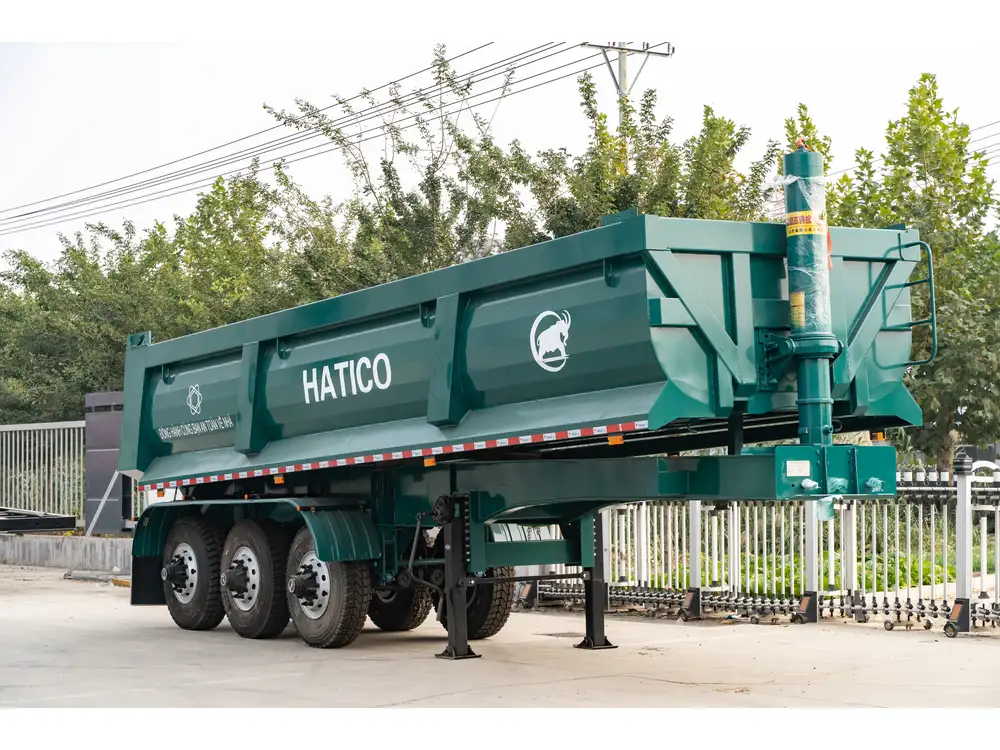
4. Defective ABS Control Module
The control module processes sensor data and manages the braking operations. Electrical issues or failures in this component can disable the ABS.
5. Blown Fuses or Electrical Problems
Electrical issues, including blown fuses or corroded connections, can prevent the ABS system from communicating effectively, leading to warning lights.
Troubleshooting the ABS Light on Your Semi Truck
Addressing the ABS light promptly ensures the safety and reliability of your semi-truck. Follow these step-by-step troubleshooting methods to identify and resolve common issues.

Step 1: Perform a Visual Inspection
- Check for Visible Damage: Inspect wheel speed sensors, ABS rings, and wiring for signs of wear, corrosion, or damage.
- Inspect Brake Fluid Levels: Ensure that brake fluid is at the recommended level and check for any leaks.
Step 2: Scan for Diagnostic Trouble Codes (DTCs)
Using an OBD-II scanner compatible with heavy-duty vehicles, retrieve any stored DTCs. These codes provide specific information about which component is malfunctioning.
Step 3: Test Wheel Speed Sensors
- Multimeter Testing: Use a multimeter to check the resistance of each wheel speed sensor. Compare the readings with manufacturer specifications.
- Physical Inspection: Ensure sensors are securely mounted and free from debris.

Step 4: Examine ABS Rings
- Visual Check: Look for cracks, dents, or missing teeth on the ABS rings.
- Alignment Verification: Ensure that the rings are correctly aligned with the wheel speed sensors.
Step 5: Assess the ABS Control Module
- Power Supply Check: Verify that the control module is receiving adequate power.
- Internal Inspection: Look for signs of burn marks or component failure on the module’s circuit board.
Step 6: Inspect Electrical Connections
- Connector Integrity: Ensure all electrical connectors are secure and free from corrosion.
- Fuse Examination: Check fuses related to the ABS system and replace any that are blown.

Step 7: Reset the ABS System
After addressing the identified issues, use the diagnostic tool to reset the ABS system. Test drive the vehicle to ensure the ABS light remains off.
The Importance of Regular ABS Maintenance
Regular maintenance of the ABS system prevents unexpected failures and ensures optimal performance. Here’s how routine checks contribute to the longevity and reliability of your semi-truck’s ABS.
Benefits of Routine ABS Maintenance
- Enhanced Safety: Regular inspections detect issues before they escalate, maintaining braking efficiency.
- Cost Savings: Preventative maintenance reduces the likelihood of costly repairs and extends component life.
- Regulatory Compliance: Ensures adherence to safety standards, avoiding fines and penalties.
- Improved Vehicle Performance: Maintains optimal ABS functionality, contributing to smoother and safer operations.
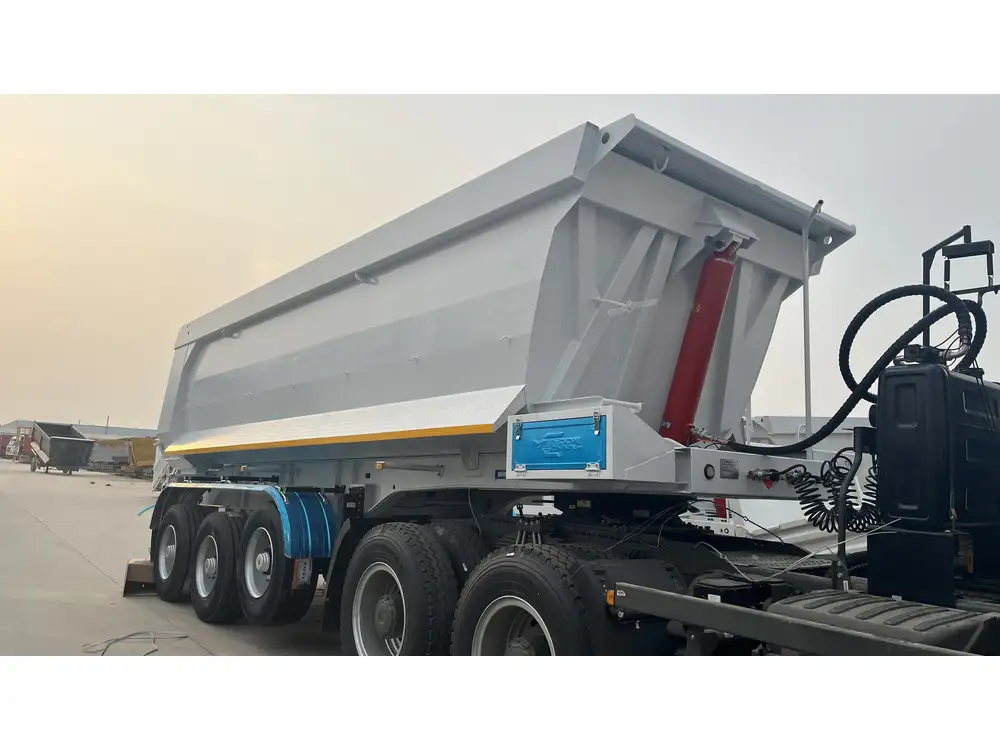
Maintenance Checklist for ABS Systems
| Maintenance Task | Frequency |
|---|---|
| Inspect wheel speed sensors | Every 10,000 miles |
| Clean ABS rings and sensors | Every 20,000 miles |
| Check brake fluid levels | Monthly |
| Test ABS control module | Annually |
| Examine electrical connections | Every 5,000 miles |
CarMax Vehicle’s ABS Solutions
At CarMax Vehicle, we offer state-of-the-art ABS systems tailored for semi-trucks, ensuring reliability and superior performance under all driving conditions.
Features of CarMax ABS Systems
- Advanced Sensor Technology: High-precision wheel speed sensors for accurate data transmission.
- Durable ABS Rings: Engineered to withstand harsh environments and heavy loads.
- Robust Control Modules: Designed for seamless integration and efficient processing.
- User-Friendly Diagnostics: Simplified troubleshooting with comprehensive diagnostic tools.

Benefits of Choosing CarMax ABS Systems
- Enhanced Safety: Reliable ABS performance reduces accident risks.
- Long-Term Durability: Components built to last, minimizing the need for frequent replacements.
- Cost-Effective Solutions: Competitive pricing without compromising quality.
- Expert Support: Dedicated technical support from CarMax Vehicle’s experienced team.
Preventive Measures to Avoid ABS Issues
Proactive strategies can significantly reduce the likelihood of ABS malfunctions, ensuring uninterrupted and safe operations for your semi-truck fleet.
Tips for Preventing ABS Problems
- Regular Cleaning: Keep wheel speed sensors and ABS rings free from dirt and debris.
- Avoid Harsh Braking: Gradual braking reduces strain on the ABS components.
- Monitor Brake Fluid: Regularly check and top off brake fluid to prevent low levels.
- Scheduled Inspections: Adhere to a strict maintenance schedule to identify and address issues early.
- Quality Repairs: Use genuine parts and certified technicians for ABS repairs and replacements.
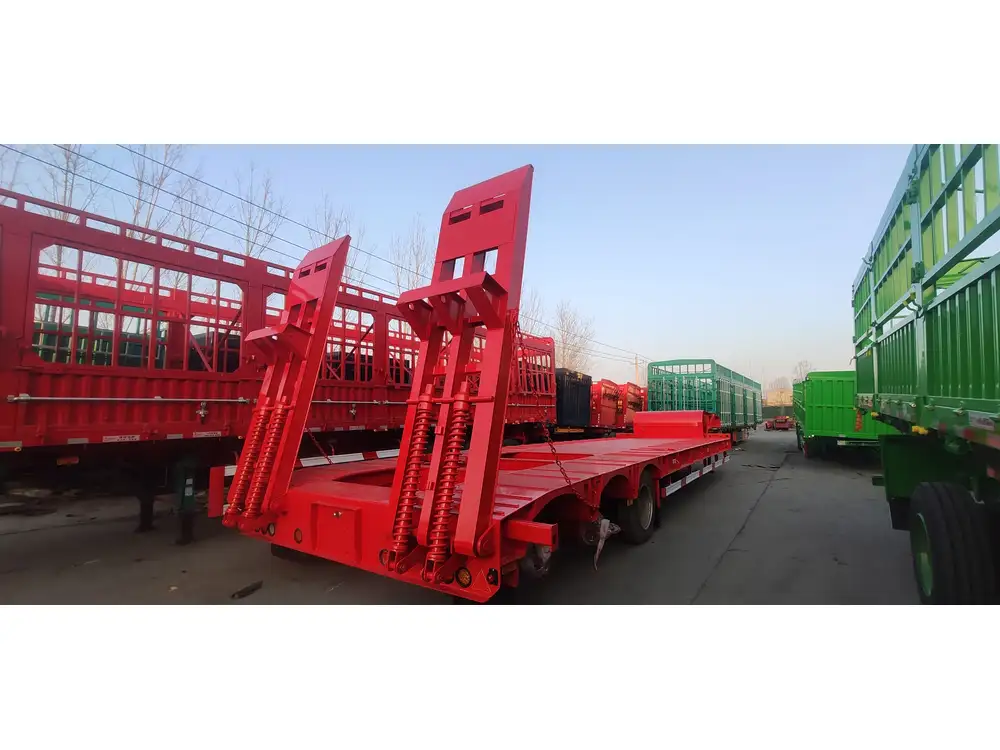
Legal Implications of a Malfunctioning ABS
Operating a semi-truck with a faulty ABS system can lead to severe legal consequences, including fines, penalties, and potential liabilities in the event of an accident.
Regulatory Standards for ABS in Semi Trucks
- Federal Motor Carrier Safety Administration (FMCSA): Mandates functional ABS systems for commercial vehicles over 10,000 pounds.
- State Regulations: Vary by state but generally require ABS for enhanced braking performance and safety compliance.
- Inspection Requirements: Regular safety inspections include checks for ABS functionality to ensure compliance.
Potential Legal Consequences
- Fines and Penalties: Non-compliance with ABS regulations can result in substantial financial penalties.
- Accident Liability: In the event of an accident, a malfunctioning ABS system can be grounds for liability claims.
- Operational Restrictions: Vehicles failing ABS inspections may be prohibited from operating until repairs are made.

Comparing ABS Systems: CarMax Trailer vs. Competitors
When selecting an ABS system for your semi-truck, it’s essential to compare the offerings of different manufacturers. Here’s how CarMax Trailer stands out in the competitive landscape.
CarMax Trailer ABS vs. Standard ABS
| Feature | CarMax Trailer ABS | Standard ABS |
|---|---|---|
| Sensor Precision | High | Moderate |
| Durability | Superior | Varies |
| Diagnostic Capabilities | Advanced | Basic |
| Integration with Fleet Systems | Seamless | Limited |
| Cost | Competitive | Often Higher for Similar Features |
Advantages of CarMax Trailer ABS Systems
- Superior Sensor Technology: Ensures accurate wheel speed detection under all conditions.
- Enhanced Durability: Built to endure the rigors of heavy-duty trucking.
- Comprehensive Diagnostics: Facilitates easier troubleshooting and maintenance.
- Fleet Integration: Compatible with fleet management systems for streamlined operations.
- Cost Efficiency: Offers robust features at a competitive price point.

Enhancing Driver Safety with CarMax’s ABS Technology
Driver safety is paramount in the trucking industry. CarMax’s ABS technology is designed to provide peace of mind and enhance the safety of your drivers on the road.
Key Safety Benefits
- Improved Braking Control: Prevents wheel lock-up, allowing for better maneuverability during emergency stops.
- Reduced Stopping Distances: Optimizes brake performance to achieve shorter stopping distances.
- Enhanced Traction: Maintains traction on slippery or uneven road surfaces, reducing the risk of skidding.
- Driver Confidence: Reliable ABS performance boosts driver confidence, leading to safer driving practices.
Training and Support for Drivers
CarMax Vehicle not only provides advanced ABS systems but also offers training and support to ensure drivers are well-versed in utilizing ABS technology effectively.
- Driver Training Programs: Educate drivers on ABS functionality and best practices for braking.
- Technical Support: Access to expert assistance for troubleshooting and system optimization.
- Safety Resources: Comprehensive guides and resources to promote safe driving habits.
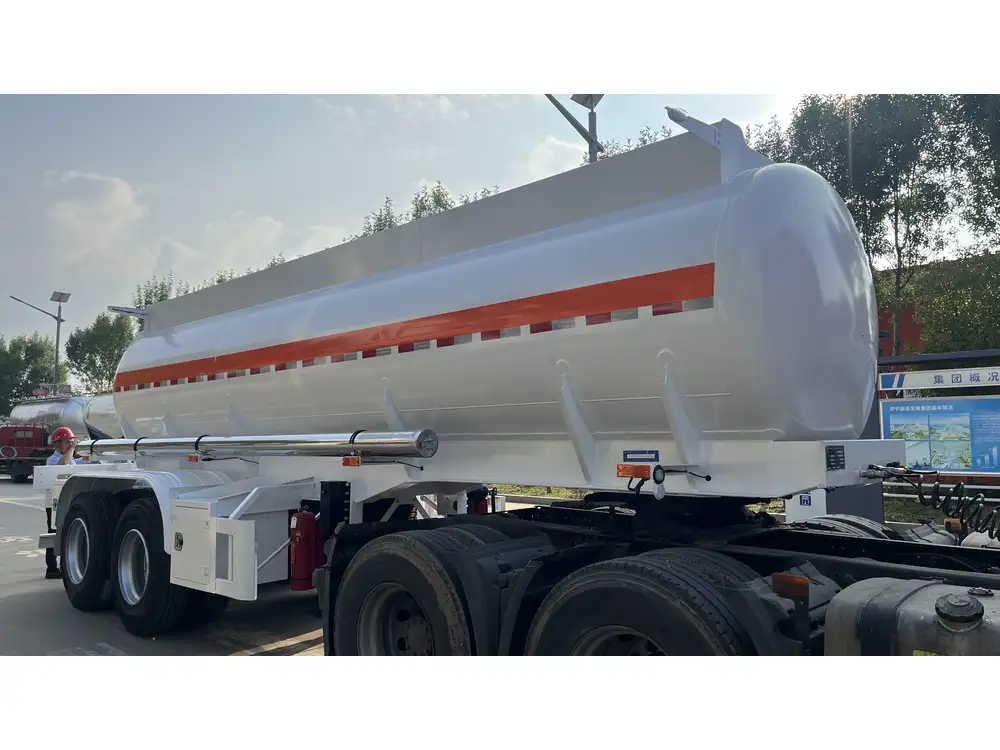
FAQs
1. What Causes the ABS Light to Turn On in a Semi Truck?
The ABS light can illuminate due to various reasons, including faulty wheel speed sensors, damaged ABS rings, low brake fluid levels, defective ABS control modules, or electrical issues such as blown fuses.
2. Is It Safe to Drive a Semi Truck with the ABS Light On?
While the semi-truck can still be driven with the ABS light on, it is not recommended as the Anti-lock Braking System may not function correctly, increasing the risk of accidents. It is advisable to address the issue promptly.
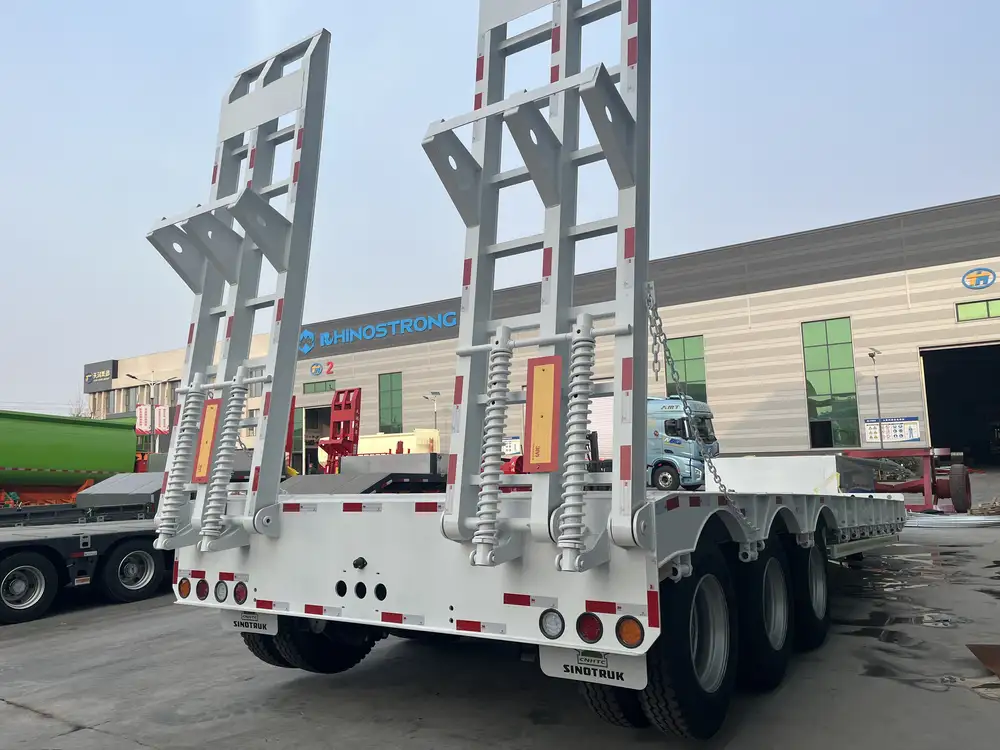
3. How Often Should the ABS System Be Inspected?
Regular inspections should be part of your fleet’s maintenance schedule. It is recommended to inspect the ABS system every 10,000 miles, with more thorough checks annually or as specified by the manufacturer.
4. Can I Repair the ABS System Myself?
Repairing the ABS system requires specialized knowledge and equipment. It is best to consult with certified technicians or contact CarMax Vehicle for professional maintenance and repairs to ensure safety and compliance.
5. What Are the Benefits of Upgrading to CarMax Trailer’s ABS System?
Upgrading to CarMax Trailer’s ABS system offers enhanced sensor precision, superior durability, advanced diagnostic capabilities, seamless fleet integration, and cost-effective solutions, ensuring improved safety and operational efficiency.
At CarMax Vehicle, we are committed to providing top-tier ABS solutions tailored for the demanding needs of semi-truck operations. Ensuring your ABS system is functioning optimally not only enhances safety but also contributes to the reliability and efficiency of your fleet. Contact us today to learn more about our ABS systems and how we can support your trucking business.



